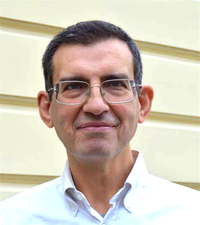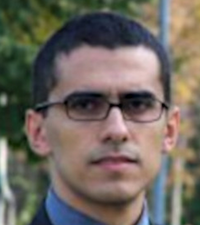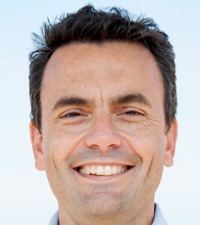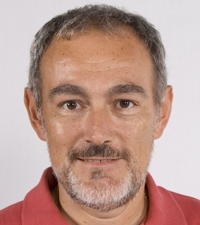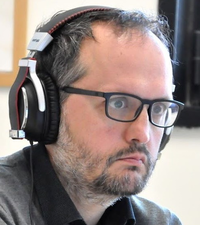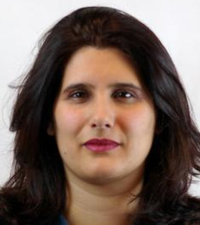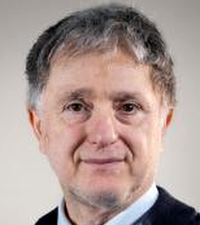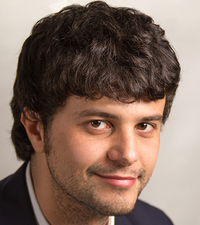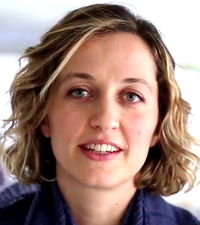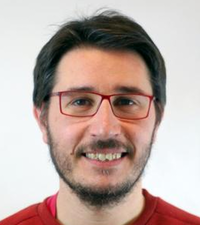Plenary Session
31 maggio 2023, Area della Ricerca del CNR di Pisa
Il programma delle prime due giornate (29 e 30 maggio) dedicate ai workshop è disponibile al seguente link.
Mercoledì 31 Maggio
| 9:00 |
Opening chair: Fabrizio Falchi (Consiglio Nazionale delle Ricerche)
Remarks from the Ital-IA 2023 Chairs
| |||||||||||||||||||||||
| 10:00 | The FAIR partnership and the Alan Turing Institute: a dialogue chair: Fosca Giannotti (Scuola Normale Superiore)
|
|||||||||||||||||||||||
| 10:30 | Coffee Break | |||||||||||||||||||||||
| 11:00 | Due Diligence in AI: the path towards the AI Act into force chair: Anna Monreale (Università di Pisa)
| |||||||||||||||||||||||
| 12:00 | Chatting on ChatGPT-4: a dialogue on LLM
chair: Dino Pedreschi (Università di Pisa)
| |||||||||||||||||||||||
| 13:00 | light lunch | |||||||||||||||||||||||
| 14:30 | AI uptake in Italy: numbers from the AI observatory and success stories chair: Nicola Gatti (Politecnico di Milano)
| |||||||||||||||||||||||
| 15:30 | EU AI Act: new requirements for developers of "foundations models"
|
|||||||||||||||||||||||
| 16:00 | Summary from the Workshops
| |||||||||||||||||||||||
| 17:00 | Conclusions | |||||||||||||||||||||||
| 17:30 | End |
Short bios
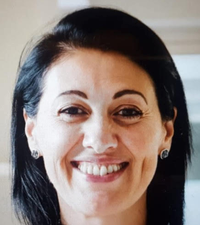 |
Maddalena Amoruso Group Data Office at Poste Italiane, accountable for data strategy, analytics & AI, customer profiling and marketing automation program. Graduated in physics at the University of Pisa, she has more than 20 years of experience in consulting, software, telco and technology firms working on digital and data driven transformation. |
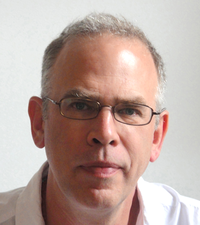 |
James Brusseau is with the Pace University (New York, USA) and visiting Professor at the Department of Information Engineering and Computer Science ( University of Trento). Earliest work explored conceptions of selfhood built on a metaphysics of difference (Nietzsche, Bataille, Deleuze). Subsequent work conceived philosophy after French Nietzscheanism as decadent. Current work engages the human dilemmas of artificial intelligence intersecting with privacy, authenticity, freedom, and personal identity. |
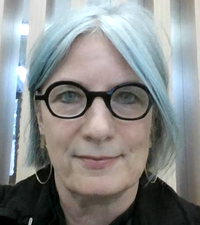 |
Allaine Cerwonka Allaine Cerwonka is Director of Turing International. She leads in the development in the Institute’s international strategy. She is responsible for Turing’s international activities which include international research collaborations, a visitors’ programme, and delivering the international AI leadership as set out in the UK’s AI Strategy. As Associate Director of the research programme AI for Government & Science (ASG), she co-leads a large-scale programme which aims to extend the benefits of AI to the public sector and discovery science, including offices of the national government, local government, the healthcare sector and scientific agencies and labs. Included in the programme’s work are the development of digital twins for industry and urban planners; and the co-design of ethical frameworks and guidelines with government and third sector stakeholders. |
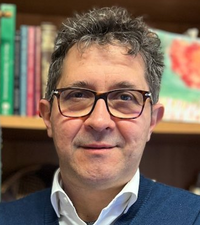 |
Giovanni Comandé is Full Professor of Private Comparative Law at Scuola Superiore S. Anna Pisa, Italy. PhD. SSSA, LLM Harvard Law School, Founder and Director of the LIDER-LAB (www.lider-lab.it). Attorney at law (Pisa since 1995); (New York Bar since 1997). Mediator mediation trainer. He is currently a Consultative Member of the American Law Institute for Information Privacy (www.ali.org); Member of the European Group on Tort Law for drafting Principles of European Tort Law (PETL); Member of the European Center for Law and Insurance (www.ectil.org, Wien); Member of The European Law Institute (ELI) www.europeanlawinstitute.eu. |
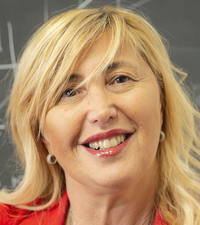 |
Rita Cucchiara is a full professor in the Department of Engineering "Enzo Ferrari" at the University of Modena and Reggio Emilia, where she is Director of the AI Research and Innovation Center (AIRI) and coordinates AImagelab for research in computer vision and multimodal deep learning. She has been in 2016-18 President of Italian Association CVPL and in 2018-21 Director of the CINI Lab AIIS. She is ELLIS Fellows and director of the ELLIS unit in Modena. She is affiliated at IIT-CNR institute and Member of the Board of Director of Italian institute of technology. She is member of the Advisor Board of IIS Max Planck (D) and CVC Barcelona. (S) GChair of ICVR20, ECCV22, ACMMM23 and CVPR24. |
 |
Ernesto Damiani is President of the National Interuniversity Consortium for Informatics (CINI), Full Professor at Università degli Studi di Milano, Director of Center for Cyber Physical Systems (C2PS) within the Khalifa University and leader of the Big Data area at Etisalat British Telecom Innovation Center. He is also part of the ENISA Ad-Hoc Working Group on Artificial Intelligence Cybersecurity, where he serves as Rapporteur. |
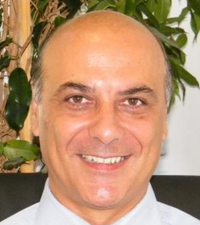 |
Giuseppe De Pietro Presidente della Fondazione FAIR e Direttore dell’Istituto di Calcolo e Reti ad Alte Prestazioni del CNR. Precedentemente è stato docente presso la facoltà di Ingegneria dell’Università di Napoli “Federico II”. Consulente del Ministero per le Riforme e Innovazioni nella Pubblica Amministrazione, per la definizione delle strategie di diffusione delle nuove tecnologie dell’informazione e della comunicazione nell’ e-government. Esperto del Ministero per lo Sviluppo Economico. E’ stato anche membro della commissione bilaterale DigitPA – CNR e della della commissione bilaterale tra DigitPA e CNR per i processi di innovazione tecnologica ed e-government. Presidente del C.D.A. di Ehealthnet scarl e rappresentante del CNR nel Laboratorio pubblico/privato ehealthnet. Membro Italiano dell’e-Infrastructure Reflection Group. Esperto designato dal MIUR Pianificazione Reti di Ricerca Europee. Consigliere del C.D.A. del Centro di Competenza Regionale per l’ICT – CeRICT. Rappresentante del CNR nel CeRICT.national. |
 |
Paolo Errico
CEO & Founder Maxfone. Vice Presidente per Innovazione e Transizione Digitale Piccola Industria Confindustria. |
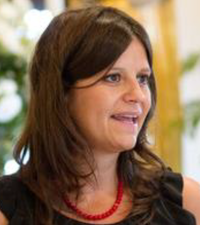 |
Francesca Galli Dirigente di ruolo di II Fascia presso la Segreteria Tecnica del Ministro, Gabinetto MUR. |
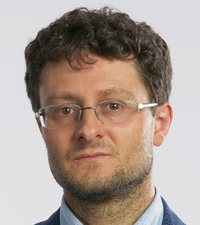 |
Nicola Gatti is Professor in Artificial Intelligence at Politecnico di Milano. He is EurAI Fellow and AAIA Fellow. He is co-director of the Ellis Unit at Milano, co-director of the AI Research and Innovation Center of Politecnico di Milano, and co-director of the Italian Observatory Artificial Intelligence. Since 2023, he is the Coordinator of the Spoke 4 of FAIR Project. |
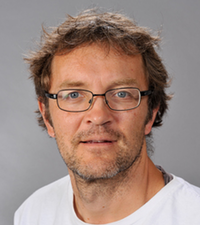 |
Alistair Knott
works in the areas of Cognitive Science and Artificial Intelligence (AI). He studied Philosophy and Psychology at Oxford University, then did postgrad and postdoc work in AI at the University of Edinburgh. He has been based in Aotearoa New Zealand since 1998, first at Otago University, and now at Victoria University of Wellington. |
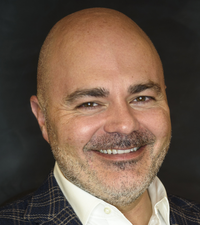 |
Mirko Lalli Fondatore e il CEO di The Data Appeal Company SpA (ex Travel Appeal), acquisita nel 2022 da Almawave Spa,del gruppo Almaviva, per la quale è Chief Group Digital Strategy Officer. L’obiettivo della società è quello di democratizzare e semplificare l’uso e la comprensione dei dati, per aiutare aziende e istituzioni a prendere decisioni efficaci e consapevoli e accelerare il progresso verso un mondo più sostenibile e inclusivo. Ha fatto parte del Comitato Innovazione Turismo del Ministero del Turismo e ha collaborato all’ideazione e alla realizzazione di BTO - Buy Tourism Online. Nel dicembre 2017 ha partecipato all’Executive Program di Singularity University in Silicon Valley. |
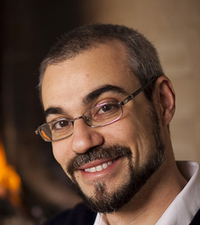 |
Marco Malvaldi Chimico e scrittore, ha esordito nel 2007 per Sellerio con La briscola in cinque, primo degli otto volumi dedicati ai “vecchietti del BarLume”, divenuti nel 2013 una serie televisiva e seguiti da una lunga serie di romanzi e di saggi di divulgazione scientifica. Per Giunti ha da poco pubblicato Oscura e celeste, La misura dell’uomo (2018) e – a quattro mani con Paolo Cintia – Rigore di testa (2021). I suoi ultimi libri, scritti insieme a Samantha Bruzzone, sono Chi si ferma è perduto (Sellerio, 2022) e La molla e il cellulare (Raffaello Cortina, 2022). Nel suo saggio "Per ridere aggiungere l'acqua" (BUR, 2018), ha trattao il tema del linguaggio in relazione all'umorismo. |
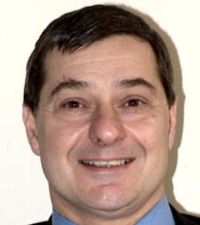 |
Daniele Nardi Direttore del Laboratorio Nazionale di Artificial Intelligence and Intelligent Systems del CINI e Professore Ordinario di Intelligenza Artificiale (Artificial Intelligence) Sapienza Università di Roma. |
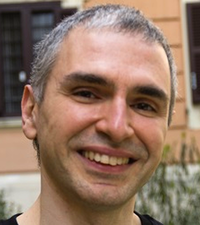 |
Roberto Navigli is Professor of Computer Science at the Sapienza University of Rome, where he leads the Sapienza NLP Group. He is one of the few researchers to have received two prestigious ERC grants in AI on multilingual word sense disambiguation (2011-2016) and multilingual language- and syntax-independent open-text unified representations (2017-2022), selected among the 15 projects (out of 10,000) through which the ERC transformed science. In 2015 he received the META prize for groundbreaking work in overcoming language barriers with BabelNet, a project also highlighted in The Guardian and Time magazine, and winner of the Artificial Intelligence Journal prominent paper award 2017. He is the co-founder of Babelscape, a successful company which enables Natural Language Understanding in dozens of languages. He served as Associate Editor of the Artificial Intelligence Journal (2013-2020) and Program Chair of ACL-IJCNLP 2021. He will serve as General Chair of ACL 2025. |
 |
Alessandro Nicolosi received the B.Sc. degree in computer engineering and the M.Sc. degree in control engineering from the University of Rome “Tor Vergata”, in 2007 and 2010, respectively. Early in his experience he has worked in the field of industrial research and development mainly focused on unmanned aerial vehicle control systems and flight dynamics parameters estimation. Since 2015, he has been working in the field of computer vision and deep learning technologies, applied to video analysis, security, real time systems and predictive maintenance products. Currently, he is the Head of AI Research Area of Leonardo Labs. |
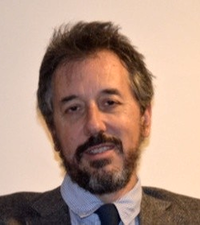 |
Francesco Saverio Nucci is Director of Application Research at Engineering SpA company. He served as external high level expert for different governmental and private institutions, such as Italian Ministry of Economic Development, European Commission DG Connect and international industrial boards and committees. He has been member of the high level expert group for the definition of the Italian Strategy for Artificial Intelligence. He has been teaching associate at many Italian universities, such as Scuola Normale Superiore of Pisa and “La Sapienza” of Rome. Actually, he is professor at International Telematic University Uninettuno for Information Processing Systems. |
 |
Ellie Pavlick is an Assistant Professor of Computer Science at Brown University, and a Research Scientist at Google. She is interested in understanding how language models (especially large, neural networks models) work under the hood, and in characterizing how the representations and algorithms they use reflect and differ from those of humans. |
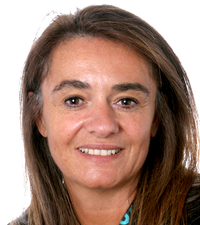 |
Lucilla Sioli is the Director for “Artificial Intelligence and Digital Industry” within Directorate-General CONNECT at the European Commission. She is responsible for the coordination of the European digitisation of industry strategy and for policy development in the area of artificial intelligence (AI). The directorate also supports R&D&I in key digital industrial technologies including microelectronics, photonics, robotics and AI. Ms Siolo has been a civil servant with the European Commission since 1997. |
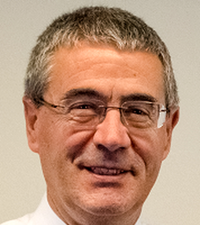 |
Carlo Tacchetti
is Professor of Anatomy at Vita-Salute University of Milan, Director of The Experimental Imaging Centre of the IRCCS San Raffaele Hospital, Coordinator of the Microsoft/UniSR/HSR AI strategic program. |

